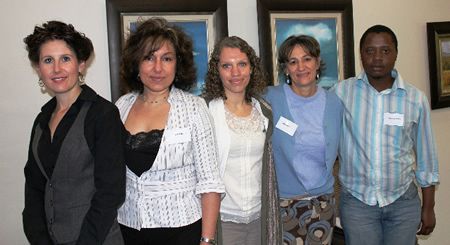| 46% of getS.E.T.go! readers think that the most important benefit of South Africa’s recent participation in the Shanghai Expo, will be the raising of our country’s science & technology profile on the global stage. | |
| 38% opted for “sharing of international best practices in maths & science education”; and 15% for “building an international network of contacts”. |
Almost 21 000 learners from around South Africa and SADC countries participated in the Science Olympiad this year.

Scientists are often required (and often struggle) to communicate their knowledge and research to non-scientific audiences. A recent workshop at the University of the Free State’s (UFS) Faculty of Natural and Agricultural Science offered tips on how to do this better.
In order for scientists and researchers to effectively transfer their messages and build understanding of a complicated field such as science, they need to develop a consciousness of the obstacles between them and their target audiences, as well as learn skills for communicating effectively. This is especially true when those audiences include policy-makers, the general public, children, advocacy groups and the media.
Earlier this year the UFS Faculty of Natural and Agricultural Science, in cooperation with SAASTA, presented a science translation workshop to masters and doctorate students as well as young researchers in the faculty. Attendees learned about the importance of effective communication and how to successfully interact with target audiences. Practical work included the writing and delivering of press releases as well as mock television and radio interviews.
“I tend to say things in very complicated ways, which results in nobody understanding it,” explained one attendee, Du Toit Schabort from the Department of Microbial, Biochemical and Food Biotechnology. “South Africa is in urgent need of science and for that reason we should translate it so that everyone can understand it – from school learners right through to politicians.”

From left are Anke Wilhelm-Mouton (UFS Department of Chemistry) with presenters, Janine Lazarus, Michelle Joubert (SAASTA) and Adele Baleta, as well as Thabang Bambo (UFS Department of Plant Sciences). Photo and text by Stefanie Naborn, UFS.
